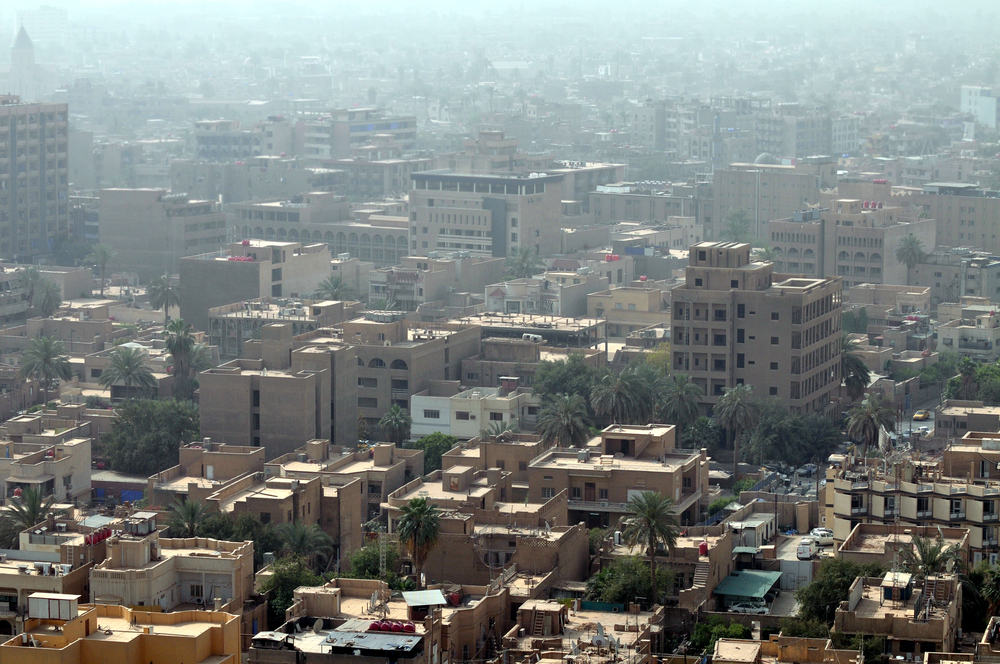World News
Iraq: Signs emerge of reprisal sectarian killings
BAGHDAD — Possible signs emerged Tuesday of reprisal sectarian slaughter of Sunnis in Iraq, as police said pro-government Shiite militiamen killed nearly four dozen detainees after insurgents tried to storm a jail and free them northeast of Baghdad.
The Iraqi military insisted the Sunni inmates were killed when the attackers shelled the facility outside the city of Baqouba. Neither account could be independently confirmed, but a local morgue official said many of the detainees had bullet wounds to the head and chest.
The allegation of Shiite killings of Sunnis was the first hint of the beginnings of a return to sectarian warfare that nearly tore the country apart. Sunni militants also have been accused of atrocities in areas they have captured over the past week.
The insurgents were repelled, but the fighting around the jail was the closest to Baghdad since the al-Qaida breakaway group the Islamic State of Iraq and the Levant began its lightning advance, seizing several key cities in the Sunni heartland in northern Iraq.
There were conflicting details about the fighting in the al-Kattoun district near Baqouba, the capital of Diyala province and one of the bloodiest battlefields of the U.S.-led war, and on how the detainees were killed. The city is 60 kilometers (40 miles) northeast of the Iraqi capital.
Three police officers said the police station, which has a small jail, came under attack on Monday night by Islamic militants who tried to free the detainees, mostly suspected Sunni militants.
The three said Shiite militiamen, who rushed to defend the facility, killed the detainees at close range. A morgue official in Baqouba said many of the slain detainees had bullet wounds to the head and chest. All four officials spoke on condition of anonymity fearing for their own safety.
However, Iraq’s chief military spokesman Lt. Gen. Qassim al-Moussawi, told The Associated Press that 52 detainees who were held at the station in al-Kattoun died when the attackers from the Islamic State shelled it with mortars.
The group is known to be active in Diyala, a volatile province with a mix of Sunnis, Shiites and Kurds and where Shiite militiamen are deployed alongside government forces. Sunni militants have for years targeted security forces and Shiite civilians in the province, which abuts the Iranian border.
Nine of the attackers were killed, al-Moussawi said.
The conflicting reports could not immediately be reconciled, but if the version of events provided by the policemen and the coroner is independently verified, then the incident would be an example of the sectarian strife and atrocities that Iraq’s ongoing crisis could yield.
Iraq has been in danger of sliding back to the wholesale Shiite-Sunni bloodletting of 2006 and 2007 since Sunni militants seized at least one city and significant parts of the countryside in Anbar province west of Baghdad early this year.
Continuous bombings blamed on Sunni militants in Baghdad and elsewhere, and targeted assassinations of members of both communities have deepened fears of outright sectarian warfare.
During the United States’ eight-year presence in Iraq, American forces acted as a buffer between the two Islamic sects, though with limited success. The U.S. military withdrew at the end of 2011, but it is now being pulled back in – albeit so far on a limited basis.
Nearly 300 armed American forces are being positioned in and around Iraq to help secure U.S. assets as President Barack Obama nears a decision on an array of options for combating the Islamic militants, including airstrikes or a contingent of special forces.
The White House has continued to emphasize that any military engagement remained contingent on the government in Baghdad making political reforms.
The U.S. and Iran, Iraq’s Shiite neighbor and close ally, also held an initial discussion on how the longtime foes might cooperate to ease the threat from the al-Qaida-linked militants that have swept through Iraq. Still, the White House ruled out the possibility that Washington and Tehran might coordinate military operations in Iraq.
The Islamic State has vowed to march to Baghdad, and the Shiite holy cities of Karbala and Najaf in the worst threat to Iraq’s stability since U.S. troops left. The three cities are home to some of the most revered Shiite shrines. The Islamic State has also tried to capture the city of Samarra north of Baghdad, home to another major Shiite shrine.
The push by the Islamic State’s militants has largely been unchecked as Iraqi troops and police melted away and surrendered in the onslaught on the city of Mosul and Trikrit, Saddam Hussein’s hometown.
On Monday, the Islamic State captured the strategically located city of Tal Afar near the Syrian border, a move that strengthens its plans to carve out a state-like enclave on both sides of the border.
Iraqi military officials said some 400 elite troops and volunteers who have joined security forces were flown to an airport outside Tal Afar on Monday, but were immediately pinned down by heavy artillery shelling from the militants.
In Baghdad on Tuesday, a sticky bomb attached to a car exploded, killing three passengers and wounding 11 bystanders, according to police and hospital officials, who spoke on condition of anonymity because they are not authorized to talk to the media.






















